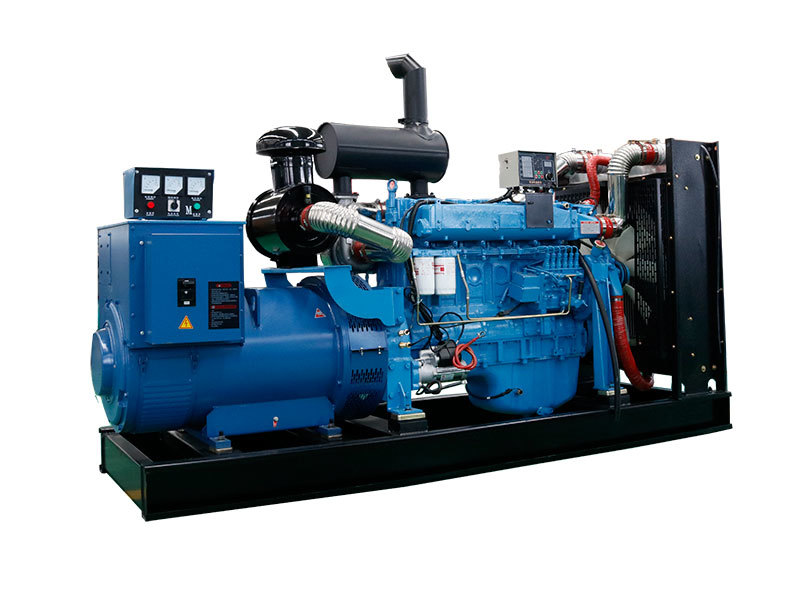If you've ever wondered how to optimize your power generation operations, you've likely considered remote monitoring and control systems for modern generator sets. These systems offer numerous advantages, from real-time data collection to predictive maintenance capabilities.
The Importance of Remote Monitoring and Control Systems
In today's fast-paced world, it's crucial to have reliable and efficient power generation systems. Remote monitoring and control systems for modern generator sets play a crucial role in achieving this goal. Here are some reasons why these systems are essential:
- Improved power management: Remote monitoring systems provide real-time data on power generation, allowing operators to make informed decisions about power distribution and consumption.
- Increased energy efficiency: By closely monitoring generator set performance, operators can identify inefficiencies and take corrective action, leading to reduced fuel consumption and lower emissions.
- Reduced maintenance costs: Predictive maintenance capabilities enable operators to address potential issues before they become significant problems, reducing maintenance costs and downtime.
Understanding Modern Generator Sets
Modern generator sets are complex machines that require sophisticated monitoring and control systems. These systems must be capable of handling large volumes of data and providing real-time insights into generator set performance.
Here are some key features to look for in a remote monitoring and control system for modern generator sets:
- Real-time data collection: The system should be capable of collecting data on various parameters, such as power output, fuel consumption, and temperature.
- Predictive maintenance capabilities: The system should be able to identify potential issues before they become major problems, allowing operators to take corrective action.
- User-friendly interface: The system should have an intuitive interface that allows operators to easily access and interpret data.
The Role of Remote Monitoring and Control Systems in Power Management
Remote monitoring and control systems play a critical role in power management. By providing real-time data on power generation, these systems enable operators to make informed decisions about power distribution and consumption. This can help to reduce energy waste and improve overall efficiency.
For example, consider a situation where a power generation facility is producing more power than is currently needed. Rather than allowing this excess power to go to waste, operators can use remote monitoring and control systems to redirect it to other areas where it is needed, such as nearby buildings or facilities.
The Impact of Remote Monitoring and Control Systems on Energy Efficiency
Remote monitoring and control systems can also have a significant impact on energy efficiency. By closely monitoring generator set performance, operators can identify inefficiencies and take corrective action, leading to reduced fuel consumption and lower emissions.
For instance, if a generator set is consuming more fuel than necessary, remote monitoring and control systems can alert operators to this issue. Operators can then take steps to address the problem, such as adjusting the generator set's load or tuning its performance parameters.
Predictive Maintenance and Reduced Downtime
One of the most significant benefits of remote monitoring and control systems is their ability to facilitate predictive maintenance. By analyzing data on generator set performance, these systems can identify potential issues before they become major problems, allowing operators to take corrective action before a breakdown occurs.
This can help to reduce maintenance costs and downtime, as operators can schedule maintenance during off-peak hours or when generator sets are not in use. Predictive maintenance can also help to extend the lifespan of generator sets, leading to long-term cost savings.
The Future of Remote Monitoring and Control Systems for Modern Generator Sets
Remote monitoring and control systems are becoming increasingly sophisticated, with new features and capabilities being developed all the time. Here are a few trends to watch in the coming years:
- Integration with other systems: Remote monitoring and control systems are increasingly being integrated with other systems, such as building management systems and energy management systems.
- Artificial intelligence and machine learning: These technologies are being used to improve predictive maintenance capabilities and optimize generator set performance.
- Cloud-based solutions: Cloud-based remote monitoring and control systems offer greater flexibility and scalability, as well as improved data security and accessibility.
Conclusion
Remote monitoring and control systems for modern generator sets offer numerous benefits, from improved power management and energy efficiency to reduced maintenance costs and downtime. By investing in these systems, operators can ensure that their power generation operations are running at peak efficiency, while also reducing their environmental impact.
If you're interested in learning more about remote monitoring and control systems for modern generator sets, please visit our official website: https://www.hsgeneratorset.com





